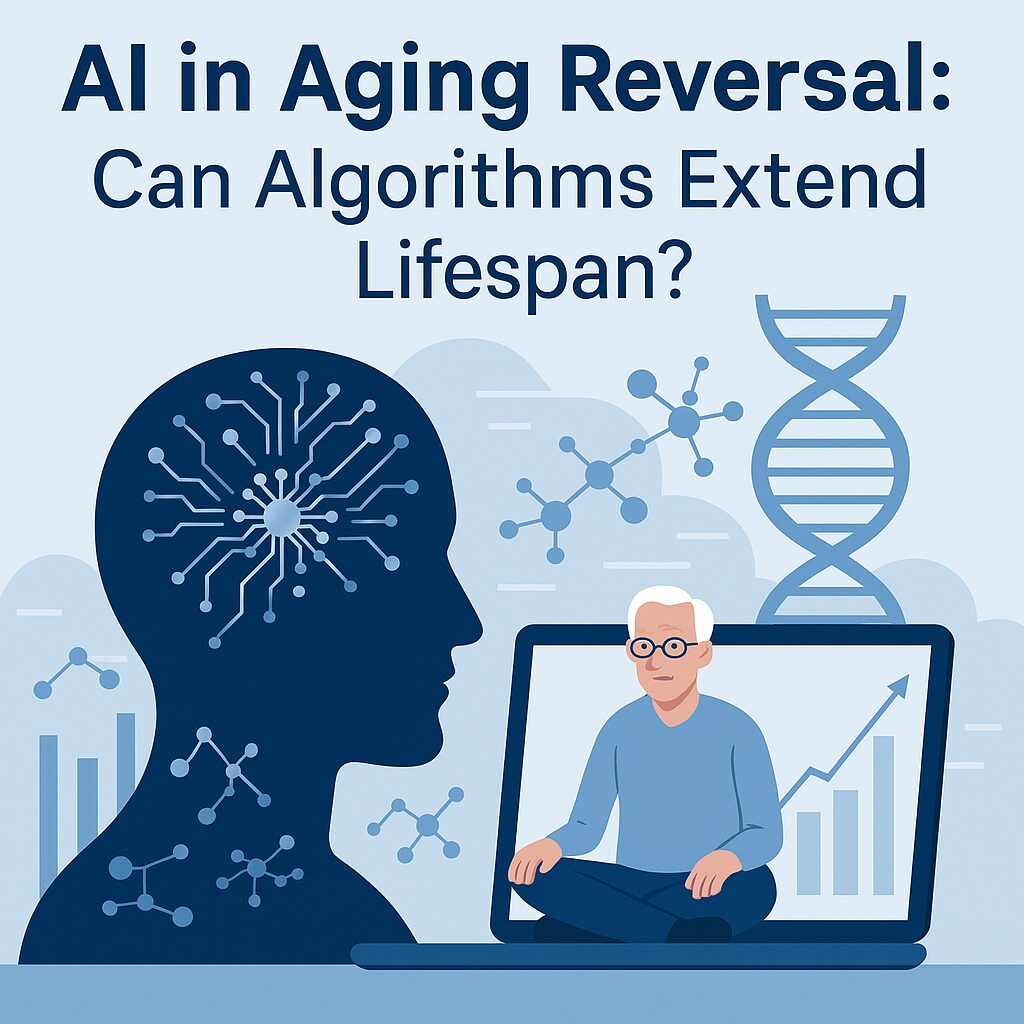Introduction
In 2025, artificial intelligence (AI) is no longer just a tool for diagnostics—it’s a driving force in the quest to reverse aging and extend human lifespan. From predictive aging clocks to AI-designed geroprotective drugs, algorithms are reshaping longevity science. This article explores how AI is accelerating aging research, the technologies behind it, and whether algorithms can truly help us live longer, healthier lives.
🧠 How AI Is Transforming Aging Research
AI systems now analyze genomic, metabolomic, and epigenetic data to uncover patterns linked to aging. These insights fuel breakthroughs in:
- Biological age prediction using aging clocks
- Drug discovery for age-related diseases
- Cellular reprogramming and regenerative therapies
- Personalized longevity plans based on individual health data
AI models like DeepGestalt, MileAge, and GENTRL are leading the charge in identifying biomarkers and designing anti-aging compounds.
🔬 Breakthroughs in 2025 Longevity Science
✅ AI-Powered Aging Clocks
Researchers at King’s College London developed metabolomic aging clocks that predict biological age using blood metabolites. These clocks outperform traditional models and correlate strongly with health outcomes.
✅ Generative AI in Drug Discovery
Platforms like Insilico Medicine use generative models to design geroprotective drugs targeting cellular senescence, DNA damage, and inflammation—hallmarks of aging.
✅ Multimodal AI Systems
New AI architectures combine imaging, genomics, and lifestyle data to create personalized aging profiles, enabling tailored interventions and real-time health tracking.
📊 Can Algorithms Really Extend Lifespan?
| AI Application | Impact on Longevity |
|---|---|
| Aging Clock Prediction | Early detection of accelerated aging |
| Drug Design | Faster development of anti-aging therapeutics |
| Cellular Reprogramming Models | Simulate rejuvenation pathways |
| Personalized Health Plans | Optimize lifestyle and treatment interventions |
While AI can’t stop aging entirely, it’s enabling early intervention, precision medicine, and healthspan optimization—key factors in extending life.
⚠️ Challenges and Ethical Considerations
Despite its promise, AI in aging reversal faces hurdles:
- Data Bias: Most aging datasets lack diversity, risking unequal outcomes
- Interpretability: Black-box models make clinical validation difficult
- Access Inequality: Longevity tech may widen health gaps between populations
- Overhype Risk: Not all AI predictions translate into biological reality
Experts stress the need for transparent algorithms, rigorous trials, and ethical frameworks to guide AI-driven longevity research.
📈 SEO Tips for Longevity Content Creators
✅ Search-Friendly Titles
- “AI in Aging Reversal: Can Algorithms Extend Lifespan?”
- “How Artificial Intelligence Is Reshaping Longevity Science in 2025”
✅ High-Impact Keywords
- “AI aging clocks 2025”
- “generative AI longevity research”
- “anti-aging drug discovery with AI”
✅ Metadata Optimization
- Alt Text: “AI analyzing biological data to predict aging and design longevity interventions”
- Tags: #AgingReversalAI #LongevityScience2025 #AIInBiotech #GeroprotectorDiscovery #HealthyLifespan
Final Thoughts
AI is not a fountain of youth—but it’s the most powerful tool we’ve ever had to understand and influence the aging process. As algorithms evolve, they offer a future where aging is predictable, preventable, and perhaps even reversible.
💬 Want help crafting content around AI in longevity, designing aging clock models, or exploring ethical implications of lifespan extension? I’d be thrilled to assist—data point by data point.

